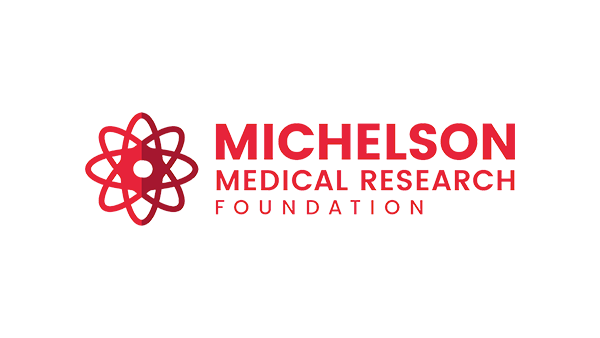

Three early career scientists, Dr. Siyuan Ding, Dr. Claire Otero, and Dr. Dennis Schaefer-Babajew, to receive $150,000 Grants for immunology and vaccine research.
NEW YORK, March 5, 2024 – The Human Immunome Project (HIP) and Michelson Medical Research Foundation (MMRF) have awarded Dr. Siyuan Ding (Washington University in St. Louis), Dr. Claire Otero (Weill Cornell Medicine), and Dr. Dennis Schaefer-Babajew (Rockefeller University) the Michelson Prizes: Next Generation Grants, the organizations announced today.
The $150,000 research grants are awarded annually to support early-career scientists advancing human immunology, vaccine discovery, and immunotherapy research for major global diseases.
“Understanding and harnessing the human immune system is the next frontier in biomedicine. Already, breakthrough research in immunology has led to therapies that treat disease, improve human health, and save lives,” said Dr. Gary K. Michelson, founder, and co-chair of Michelson Philanthropies. “Catalytic and flexible philanthropic support helps to fund our brightest young minds to develop high-risk, high-impact science and enable future breakthroughs.”
The three recipients were selected by a distinguished committee of internationally recognized scientists and represent the next generation of innovators in human immunology and vaccine research. Their proposals were chosen based on their novelty and potential impact to accelerate vaccine design and delivery for major diseases.
“We are thrilled to support these researchers as they work on new and cutting-edge approaches to combat deadly and debilitating diseases,” said Dr. Hans Keirstead, CEO of the Human Immunome Project. “The Michelson Prizes: Next Generation Grants are uniquely positioned to advance the field of immunology by supporting the sector’s emerging leaders. I am eager to watch their progress and see the outcomes of their award-winning research.”
Dr. Ding, Dr. Otero, and Dr. Schaefer-Babajew are the sixth class of Michelson Prize laureates and will be honored at a virtual award ceremony in collaboration with the Keystone Symposia, to be announced later in the year.
Meet the 2023 Michelson Prize: Next Generation Grants Awardees:
Dr. Siyuan Ding is an Assistant Professor of Molecular Microbiology at Washington University in St. Louis. His proposal, “Immunogenicity and protective efficacy of rotavirus-ETEC dual vaccines,” seeks to develop a combined vaccine for rotavirus and enterotoxigenic Escherichia coli (ETEC), the leading viral and bacterial agents of diarrhea in infants. With infectious diarrhea a leading cause of death among children, killing more each day than AIDS, malaria, and measles combined, Dr. Ding’s research could have a profound impact on child mortality.
Dr. Claire Otero is a Postdoctoral Associate in Pediatrics in the Permar Lab at Weill Cornell Medicine. Her proposal, “Viral Fc receptors as vaccine antigens for prevention of congenital CMV,” aims to overcome one of the key challenges in creating an effective vaccine for cytomegalovirus (CMV) by blocking this important immune evasion mechanism through vaccination to improve antiviral Fc-mediated immunity. CMV is a common disease that can prove deadly for those with weakened immune systems and this research can prove central to increasing protection against congenital CMV.
Dr. Dennis Schaefer-Babajew is an Instructor in Clinical Investigation in the Nussenzweig Lab at The Rockefeller University. Dr. Schaefer-Babajew’s proposal, “Antibody feedback regulation of adaptive immunity to cognate antigen,” will explore the impact of pre-existing antibodies on subsequent B cell responses. This research is poised to have major implications for our understanding of adaptive immunity against infections and for vaccine design.
***
Note to Editors: Photos and short videos detailing the award-winning research are available for each recipient.
About the Michelson Medical Research Foundation: Founded by Dr. Gary K. Michelson in 1995, the Michelson Medical Research Foundation accelerates solutions to global health challenges by fostering high-risk, high-reward approaches that disrupt the status quo to make innovative ideas a reality. Through convergent collaboration among engineers, scientists, and physicians, the foundation helps rapidly move bold concepts and technologies from the laboratory into clinics and communities around the world. Michelson Medical Research Foundation is a division of Michelson Philanthropies. For more information, visit: www.michelsonmedicalresearch.org
About the Human Immunome Project: The Human Immunome Project (HIP) is a global NGO that generates diverse immunological datasets at scale and builds publicly available AI models of the immune system to accelerate medical research and drug discovery, decrease healthcare costs, and most importantly, improve health for all. HIP operates globally and is a registered US nonprofit organization.
Contact:
Liza Kane-Hartnett
Kathryn Dunn
Responses